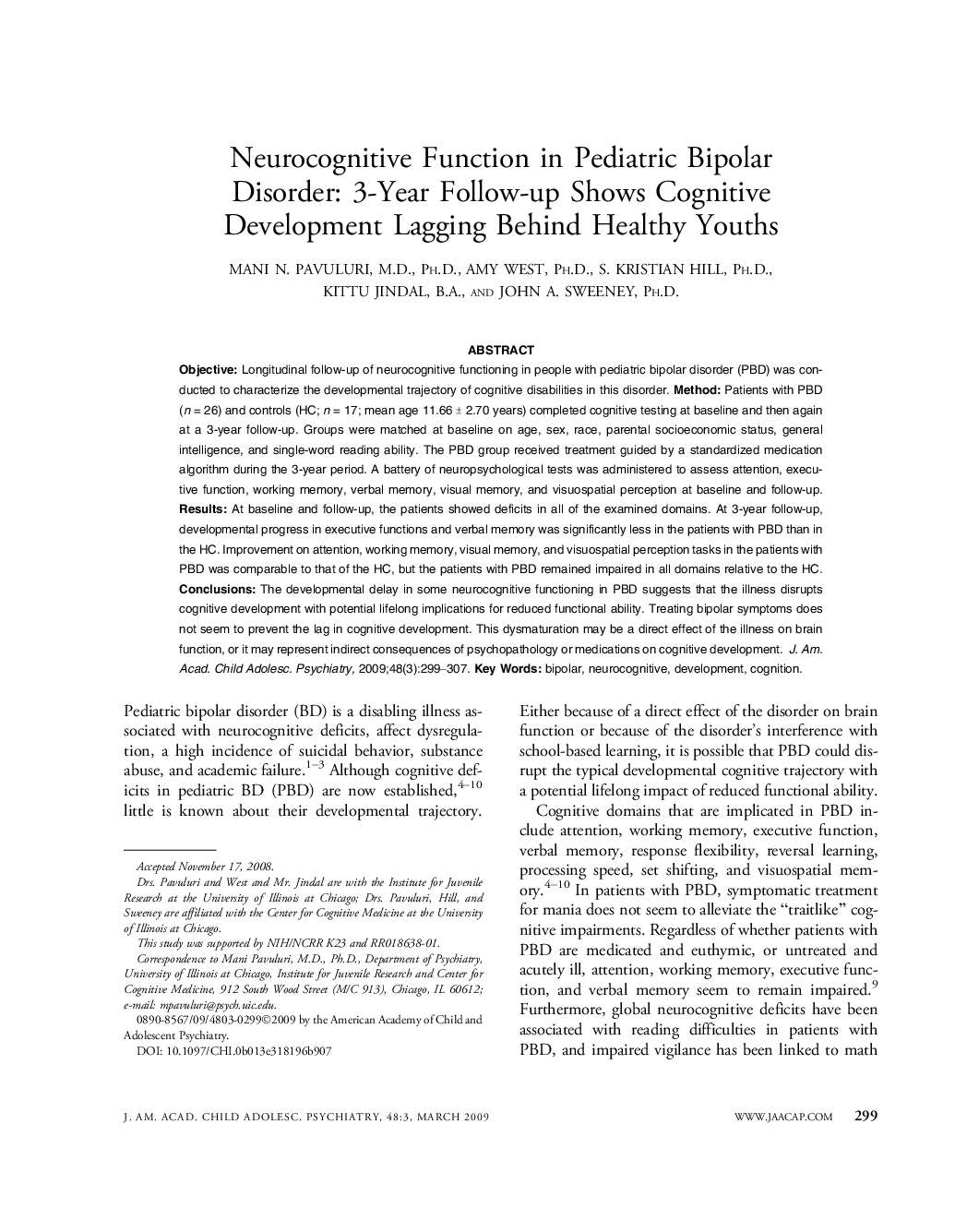| کد مقاله | کد نشریه | سال انتشار | مقاله انگلیسی | نسخه تمام متن |
|---|---|---|---|---|
| 325585 | 1433014 | 2009 | 9 صفحه PDF | دانلود رایگان |

ObjectiveLongitudinal follow-up of neurocognitive functioning in people with pediatric bipolar disorder (PBD) was conducted to characterize the developmental trajectory of cognitive disabilities in this disorder.MethodPatients with PBD (n = 26) and controls (HC; n = 17; mean age 11.66 ± 2.70 years) completed cognitive testing at baseline and then again at a 3-year follow-up. Groups were matched at baseline on age, sex, race, parental socioeconomic status, general intelligence, and single-word reading ability. The PBD group received treatment guided by a standardized medication algorithm during the 3-year period. A battery of neuropsychological tests was administered to assess attention, executive function, working memory, verbal memory, visual memory, and visuospatial perception at baseline and follow-up.ResultsAt baseline and follow-up, the patients showed deficits in all of the examined domains. At 3-year follow-up, developmental progress in executive functions and verbal memory was significantly less in the patients with PBD than in the HC. Improvement on attention, working memory, visual memory, and visuospatial perception tasks in the patients with PBD was comparable to that of the HC, but the patients with PBD remained impaired in all domains relative to the HC.ConclusionsThe developmental delay in some neurocognitive functioning in PBD suggests that the illness disrupts cognitive development with potential lifelong implications for reduced functional ability. Treating bipolar symptoms does not seem to prevent the lag in cognitive development. This dysmaturation may be a direct effect of the illness on brain function, or it may represent indirect consequences of psychopathology or medications on cognitive development.
Journal: Journal of the American Academy of Child & Adolescent Psychiatry - Volume 48, Issue 3, March 2009, Pages 299–307